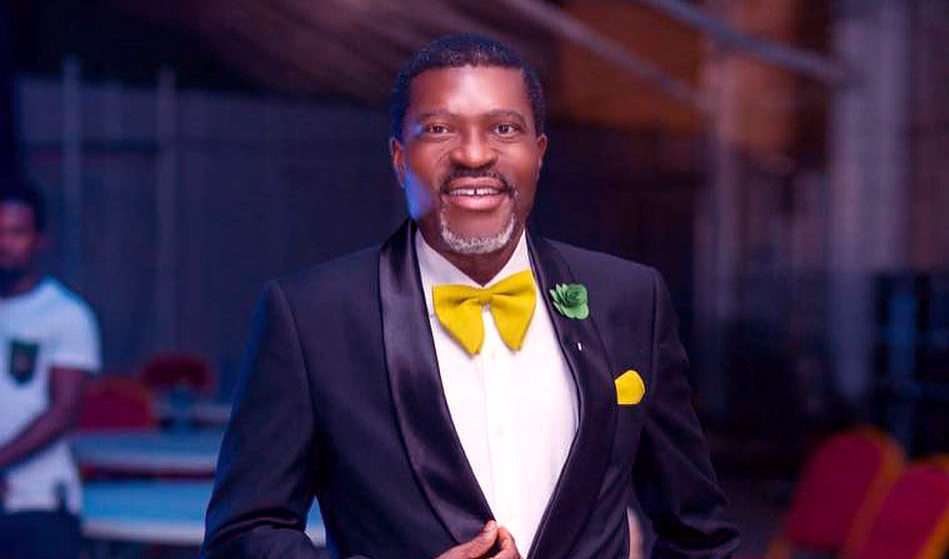
Kanayo O Kanayo
He recently highlighted the challenges faced by travellers in the region, and Nigerians have been reacting.
According to him, he did not see a single police checkpoint during his recent journey from Ibadan to Lagos, but the Onitsha Enugu checkpoint road is presently the home of intense police and military presence.
Kanayo added that he is speaking up because the humiliation Nigerians in the South-East go through has to be pointed out.
His words, “I left Felele Olorunsogo area of Ibadan this morning at 7:15, and this is exactly 8:15, and I am in Lagos. I found out one thing, over the distance of 80 kilometres, I didn’t see one police checkpoint. I didn’t see an army checkpoint either. Have you ever plied the Onitsha Enugu checkpoint road and counted the number of police or military checkpoints?
I’m still on the road, I’m in Lagos now. Why is the South East so militarised? So policed that you can’t go more than 200 kilometres without a checkpoint?
I need to ask this question because the delay in journeys and the humiliation people go through need to be pointed out. I’m saying the same distance from Enugu to Onitsa has so many checkpoints. They humiliate people so badly that most times everybody in the vehicle is asked to come down with their hands up.
Let us understand, is the south-east still part of Nigeria? Have the representatives seen the state of federal roads?”
WOW.
Nollywood is a sobriquet that originally referred to the Nigerian film industry. The origin of the term dates back to the early 2000s, traced to an article in The New York Times. Due to the history of evolving meanings and contexts, there is no clear or agreed-upon definition for the term, which has made it a subject to several controversies.
The origin of the term “Nollywood” remains unclear; Jonathan Haynes traced the earliest usage of the word to a 2002 article by Matt Steinglass in the New York Times, where it was used to describe Nigerian cinema.
Charles Igwe noted that Norimitsu Onishi also used the name in a September 2002 article he wrote for the New York Times. The term continues to be used in the media to refer to the Nigerian film industry, with its definition later assumed to be a portmanteau of the words “Nigeria” and “Hollywood”, the American major film hub.
Film-making in Nigeria is divided largely along regional, and marginally ethnic and religious lines. Thus, there are distinct film industries – each seeking to portray the concern of the particular section and ethnicity it represents. However, there is the English-language film industry which is a melting pot for filmmaking and filmmakers from most of the regional industries.
![DJ Baddo – All Of Me Remix ft John Legend [AuDio]](https://www.naijavibe.net/wp-content/uploads/wordpress-popular-posts/94409-featured-40x40.jpg) DJ Baddo – All Of Me Remix ft John Legend [AuDio]
DJ Baddo – All Of Me Remix ft John Legend [AuDio]  Dj Kamol – Crazy Gyration ft Skailey Normal [AuDio]
Dj Kamol – Crazy Gyration ft Skailey Normal [AuDio] ![Mr. Charis - All Back ft Zouwrah [AuDio]](https://www.naijavibe.net/wp-content/uploads/wordpress-popular-posts/67331-featured-40x40.jpg) Mr. Charis – All Back ft Zouwrah [AuDio]
Mr. Charis – All Back ft Zouwrah [AuDio] ![DJ Enimoney - Shaku Shaku Therapy [MixTape]](https://www.naijavibe.net/wp-content/uploads/wordpress-popular-posts/155494-featured-40x40.jpg) DJ Enimoney – Shaku Shaku Therapy [MixTape]
DJ Enimoney – Shaku Shaku Therapy [MixTape] ![Iyanya – Credit ft Don Jazzy [AuDio]](https://www.naijavibe.net/wp-content/uploads/wordpress-popular-posts/167713-featured-40x40.jpg) Iyanya – Credit ft Don Jazzy [AuDio]
Iyanya – Credit ft Don Jazzy [AuDio]  Victony, Don Toliver & Rema – Soweto
Victony, Don Toliver & Rema – Soweto  NaijaVibe at 10 MixTape
NaijaVibe at 10 MixTape ![Kolasoul - All Of Me [AuDio]](https://www.naijavibe.net/wp-content/uploads/wordpress-popular-posts/40876-featured-40x40.jpg) Kolasoul – All Of Me [AuDio]
Kolasoul – All Of Me [AuDio] ![Yung6ix – I Pray ft Oritse Femi [AuDio]](https://www.naijavibe.net/wp-content/uploads/wordpress-popular-posts/163012-featured-40x40.jpeg) Yung6ix – I Pray ft Oritse Femi [AuDio]
Yung6ix – I Pray ft Oritse Femi [AuDio]  Tekno – Freetown
Tekno – Freetown ![Big C - Obimo ft Starface [AuDio]](https://www.naijavibe.net/wp-content/uploads/wordpress-popular-posts/19188-featured-40x40.jpeg) Big C – Obimo ft Starface [AuDio]
Big C – Obimo ft Starface [AuDio] ![Tiwa Savage – One [AuDio]](https://www.naijavibe.net/wp-content/uploads/wordpress-popular-posts/169878-featured-40x40.jpg) Tiwa Savage – One [AuDio]
Tiwa Savage – One [AuDio]
 NaijaVibe NaijaVibe | Download Latest Nigerian Music & Mp3s
NaijaVibe NaijaVibe | Download Latest Nigerian Music & Mp3s


